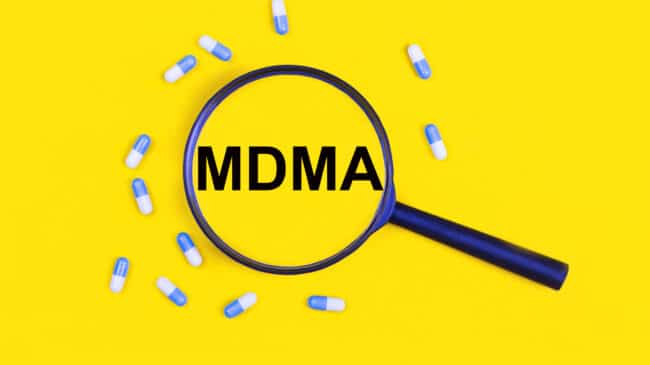Welcome to Reason Foundation’s newsletter on psychedelics policy. This edition covers:
- State Action Needed in the Wake of FDA’s Rejection of MDMA
- Voter Guide on Massachusetts Ballot
- Costly Proposed Colorado Regulations
- State Roundup
- Profile of Ibogaine Advocate Bryan Hubbard
- DEA Head Worries About Off-Label Use of Ketamine
- Feds Fund Research of Psychedelics to Fight Addiction
Op-Ed in The Hill: Advocating for state-led psychedelic therapy initiatives
Following the Food and Drug Administration’s (FDA) recent rejection of a new drug application for MDMA to be used as post-traumatic stress disorder (PTSD) treatment, Reason Foundation argues in The Hill for states to take the lead in creating commercial access to psychedelics services. Oregon and Colorado have already treated more patients with botanical psychedelics than all U.S. clinical trials combined, and states have the authority to legalize synthetic substances such as MDMA.
Voter guide
Reason Foundation has released its election 2024 voter guide. Read more about our analysis of the Massachusetts psychedelics ballot initiative, Question 4, here.
Colorado’s proposed fees for psychedelic centers would hinder business, increase costs
The Colorado Department of Revenue, which oversees much of the regulation for the state’s upcoming psilocybin services market, has proposed fees for professional licenses. Reason Foundation submitted comments arguing that the thousands of dollars in initial and renewal application fees would hinder small businesses and increase costs for working-class patients.
State roundup
A ballot initiative campaign to legalize psychedelics in Massachusetts has been racking up local endorsements, such as state Sen. Jamie Eldridge (D-Marlborough) and state Rep. Lindsay Sabadosa (D-Northampton). Read more about state-level activity in our round-up here.
Profile of ibogaine advocate Bryan Hubbard
Reason magazine published an in-depth profile of Bryan Hubbard, who is advocating to medicalize the psychedelic ibogaine as a treatment for opioid addiction. Hubbard rose to prominence as the chair and executive director of the Kentucky Opioid Abatement Advisory Commission. Since leaving the commission, he has explored new avenues to state-supported clinical research around the United States.
Reason Foundation recently published an in-depth review of the existing research showing ibogaine offers a more promising treatment for opioid addiction than all existing therapies.
DEA administrator compares ketamine to opioids
In an interview with Face the Nation, Drug Enforcement Administration Administrator Anne Milgram sharply criticized the off-label use of ketamine, drawing parallels to the early stages of the opioid epidemic. Actor Matthew Perry’s death while on ketamine has become a reason for some officials to push for aggressive new regulations and enforced limits on the prescription anesthetic, which can produce psychedelic effects at lower doses. Studies show ketamine can be highly effective as a treatment for depression when administered for this off-label purpose.
Feds fund psychedelics study
The National Institute on Drug Abuse awarded a $2.4M grant to study how psychedelics could treat addiction to methamphetamine. Recipients include Louisiana State University Health Shreveport, the Medical College of Wisconsin, and the University of California San Diego’s Center for Psychedelic Research.
